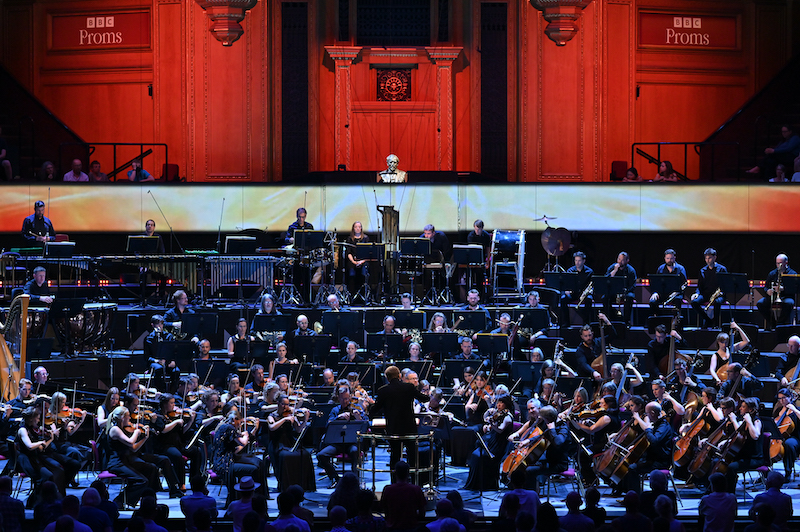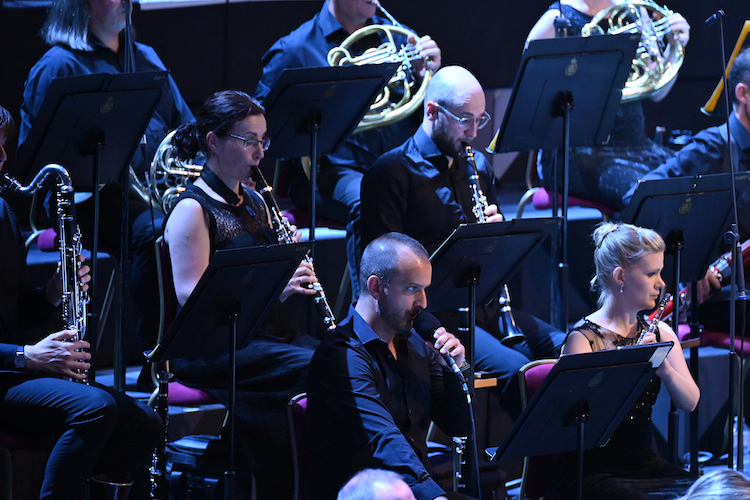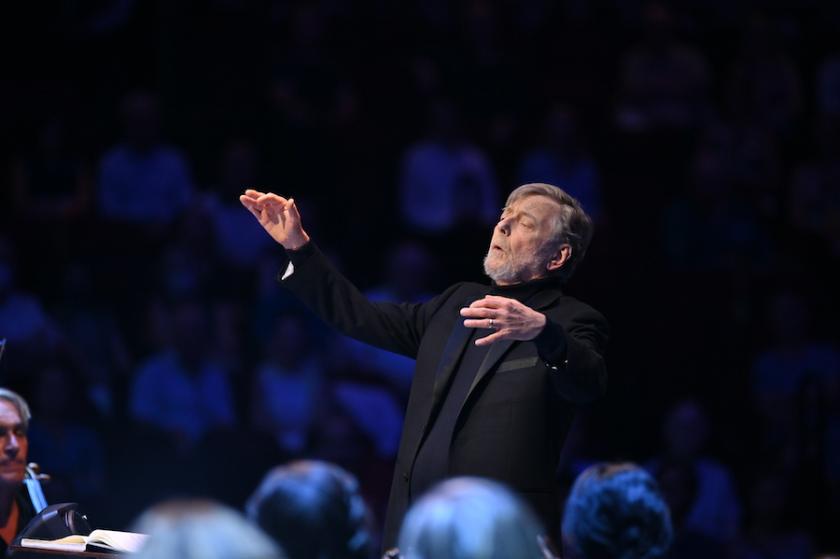The ferocity of Tuesday's heat wasn’t reflected in the pleasantly air-conditioned Royal Albert Hall – the coolest I had felt all day – but was in the intense playing of the BBC Philharmonic, in a pair of knotty and urgent British symphonies.
The programming had a neat simplicity: the fourth symphonies of Vaughan Williams and Tippett. It was also slightly thin – just over an hour of music which, even allowing for having to give way for a late-night Dido and Aeneas, could have squeezed in something else.
Neither symphony is easy listening – and this, combined with the heat and travel chaos, meant a small house. But Sir Andrew Davis proved a sure guide through the thickets, making sense of the often dense textures while also finding space in the occasional clearings. Vaughan Williams’s Fourth Symphony was premiered in 1935 and he famously said of it: “I don’t know whether I like it, but it’s what I meant.” It’s very different in tone and means from the symphonies either side and is often seen as reacting to the political developments in Europe at the time, an interpretation RVW resisted.
Vaughan Williams’s Fourth Symphony was premiered in 1935 and he famously said of it: “I don’t know whether I like it, but it’s what I meant.” It’s very different in tone and means from the symphonies either side and is often seen as reacting to the political developments in Europe at the time, an interpretation RVW resisted.
It’s certainly full of angst and tension, right from the off. The first five minutes are loud, turbulent and dissonant, the BBC Philharmonic (pictured above by Chris Christodoulou) finding an insistent momentum. But, throughout, it was the quiet passages, hard won, that had the more striking impact. The ending of the first movement was captivating, as were the snaking woodwind solos of the second, lines circling each other in tentative counterpoint.
The third movement shook off the day’s lethargy in bracing rhythmic asymmetry, a bouncing bassoon solo (Roberto Giaccaglia) setting the pace, and the fourth featured a convincingly brass-band swing to the oom-pah opening. The playing throughout was tidy and tight, with Andrew Davis unshowy – and largely still – but weighty where he needed to be.
Davis is closely associated with Tippett’s Fourth (1978), this being his third time conducting it at the Proms (out of a total of five outings). He was a sure hand at the tiller here in a piece that demanded different skills: the music is more diverse, more sectional, so the need is to somehow pull it all together. (In a brilliant and informative programme note, Tippett’s biographer Oliver Soden suggests that Tippett, an inveterate TV watcher, is “channel-hopping”.) The symphony is a birth-to-death account of a life, replete with a “breathing effect”, realised here by CJ Neale (pictured above), seated within the orchestra. Tippett was often considered “trendy” and perhaps a bit gauche in his incorporation of, for example, electric guitars into his scores. The breathing effect is odd but does bind the sections together. At the beginning it is mainly creepy, when it is probably meant to be revelatory – but the ending, a dying person’s rasp, was actually quite moving.
The symphony is a birth-to-death account of a life, replete with a “breathing effect”, realised here by CJ Neale (pictured above), seated within the orchestra. Tippett was often considered “trendy” and perhaps a bit gauche in his incorporation of, for example, electric guitars into his scores. The breathing effect is odd but does bind the sections together. At the beginning it is mainly creepy, when it is probably meant to be revelatory – but the ending, a dying person’s rasp, was actually quite moving.
The piece is generally quite stern but, as in the Vaughan Williams, this means the lighter moments have the more impact. Jennifer Galloway’s oboe solo during the slow movement was at once innocent and knowing, and in the final section, amid the hustle and bustle there is suddenly a magical passage for strings and percussion and all is forgiven. Does it all hang together? For me, not quite, but Davis and the BBC Phil made as persuasive a case as could be made.














Add comment